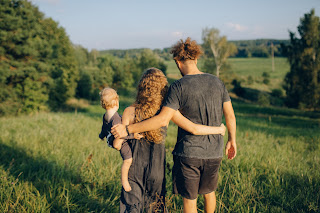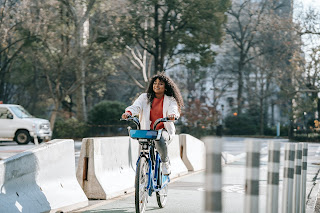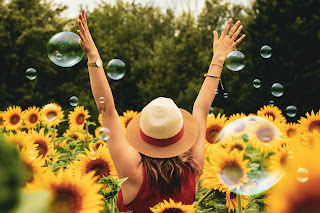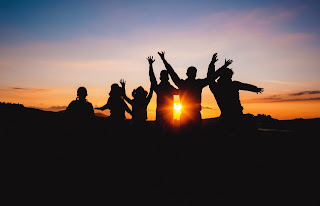Christmas is a time of giving, of joy and of warm fuzzy feelings. At least, that is how we imagine it. In reality, today, Christmas is the most unsustainable festive event in the world. What once began as a religious holiday and a jolly celebration of life has now become a season of spending, splurging and over-indulgence.
These shocking facts highlight the extend of Christmas waste worldwide:
Just imagine...
* The amount of (unrecyclable) wrapping paper used is enough to go around the globe - 9 times!
* 1 billion Christmas card end up in the bin each year!
* The equivalent of 2 million turkeys, 74 million mince pies and 5 million puddings end up in the bin each year!
* 1 in 10 unwanted gifts end up in the landfill!
* More than 1.6 billion tonnes of food is wasted each Christmas!
* 125,000 tonnes of plastic packaging is discarded during December worldwide!
* 100 million black bags full of Christmas packaging are discarded each year in Christimas time!
Sadly, it is evident that Christmas has gotten a little bit out of hand and from an environmental perspective, the holiday season is quite a disaster. So, how do we make changes that can result in a more sustainable Christmas? We have prepared a list for you to consider and check, to help you make your celebrations even more meaningful and special:
1. Choose decorations that will last a lifetime
Not all plastic is bad - if it can be reused over and over again, you don't need to shy away from a pretty plastic decoration. Opt for sturdy decorations, or make your own! Objects such as wood, twigs, ribbons, make great decor items and you'll enjoy them for years to come.
2. Switch to sustainable/reusable wrapping
You can wrap gifts in plain brown paper, something that can easily be reused and recycled. If you are looking for more colourful and fancy alternatives, get your hands on reusable fabric wrapping and check out all the elegant ways in which it can be used.
3. Buy memories over things
Research show that an experiences result in longer-lasting happiness than material possessions. A sight seeing jet flight, a cooking lesson, a pampering day at the Spa, a hobby course, the options are endless! Gifting experiences is memorable, and produces less waste.
4. It's ok to gift second-hand items
Let's get something straight, 'second-hand' is NOT a dirty word! It is a great trend in a new eco-sustainable, less consumerist world. It is an inspired choice, and usually quite personal and thoughtful. Vintage and pre-loved are cool!
5. Support business that give back
Whether its a business that plants a tree with every order, or donate a % of the profits to a worthy cause, your purchase will have a ripple effect and in true Christmas spirit, you will feel good by doing good.
6. Shop local
When you buy local, you are helping your local community to grow and create more jobs. Shopping local also means tastier, fresher and healthier food options. Buying from a local small business usually means a better and more personalised service. Plus, local products carry a much lower carbon footprint relating to packaging and transporation.
7. Go for LED lights
LED lighting provides many environmental advantages including being energy efficient, producing zero toxic elements, requiring less light fixtures and having a longer life span - meaning they are good for your pocket as well.
8. Plan meals in advance to avoid food waste
People are getting pretty good at finding creative ways to use left-overs and that's good! But to avoid food waste, simply buy less fresh stuff that goes bad and more stuff that can be opend if needed or consumed months later. Rest assured that nobody's going to leave hungry!
9. Reuse everything!
Gift boxes, filler paper, Christmas cards, advent calendar, crackers... everything can be reused and repurposed. If you have kids, you'll probably re-use them for crafts or projects. The trick is to be considerate of what you throw away and use your imagination to turn trash into treasure.
10. Remember the true meaning of Christmas
What is truly important at Christmas? It is not the gifts, the clothes, the excess food or the sparkly decorations. Its all about spending time with loved ones, and reflecting on the year passed and the year ahead, on your personal evolution, on your life goals, on your dreams - and most importantly, Christmas is a time to be grateful for what you already have!
We want to take the opportunity to wish all Eco Market Malta fans, partners, collaborators, supporters, customers, volunteers and all our precious friends a Joyful Merry Christmas and a meaningful New Year 2022! May next year bring more awareness and action towards the most important things in life! Love from us at Eco Market!


























































